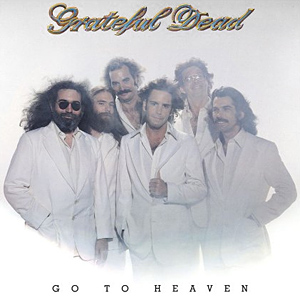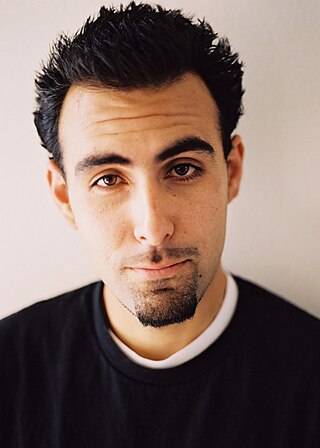
Disco is a genre of dance music and a subculture that emerged in the 1970s from the United States' urban nightlife scene. Its sound is typified by four-on-the-floor beats, syncopated basslines, string sections, brass and horns, electric piano, synthesizers, and electric rhythm guitars.
House is a music genre characterized by a repetitive four-on-the-floor beat and a typical tempo of 120 beats per minute as a re-emergence of 1970's disco. It was created by DJs and music producers from Chicago's underground club culture and evolved slowly in the early/mid 1980s, and as DJs began altering disco songs to give them a more mechanical beat. By early 1988, House became mainstream and supplanted the typical 80s music beat.

New Order are an English rock band formed in 1980 by vocalist and guitarist Bernard Sumner, bassist Peter Hook and drummer Stephen Morris. The members regrouped after the disbandment of their previous band Joy Division due to the suicide of lead singer Ian Curtis. They were joined by Gillian Gilbert on keyboards later that year. New Order's integration of post-punk with electronic and dance music made them one of the most acclaimed and influential bands of the 1980s. They were the flagship band for Manchester-based independent record label Factory Records and its nightclub The Haçienda, and they worked in long-term collaboration with graphic designer Peter Saville.
Electronica is both a broad group of electronic-based music styles intended for listening rather than strictly for dancing and a music scene that came to prominence in the early 1990s in the United Kingdom. In the United States, the term is mostly used to refer to electronic music generally.

Alec Empire is a German experimental electronic musician who is best known as a founding member of the band Atari Teenage Riot, as well as a solo artist, producer and DJ. He has released many albums, EPs and singles, some under aliases, and remixed over seventy tracks for various artists including Björk. He was also the driving force behind the creation of the digital hardcore genre, and founded the record labels Digital Hardcore Recordings and Eat Your Heart Out Records.
Dance-pop is a subgenre of pop music that originated in the late 1970s to early 1980s. It is generally uptempo music intended for nightclubs with the intention of being danceable but also suitable for contemporary hit radio. Developing from a combination of dance and pop with influences of disco, post-disco and synth-pop, it is generally characterised by strong beats with easy, uncomplicated song structures which are generally more similar to pop music than the more free-form dance genre, with an emphasis on melody as well as catchy tunes. The genre, on the whole, tends to be producer-driven, despite some notable exceptions.

Amy Paulette "Amii" Stewart is an American disco and soul singer and dancer who found prominence with her 1979 U.S. Billboard number 1 hit cover of Eddie Floyd's song "Knock on Wood", often considered a classic of the disco genre. Stewart scored further international hits including "Light My Fire" (1979) and "Friends" (1985). Stewart is the stepsister of actress-singer Miquel Brown and aunt to Brown's daughter, singer Sinitta.
Mirwais Ahmadzaï, known mononymously as Mirwais, is a French electronic dance music record producer and songwriter. Born in Switzerland to an Afghan father and an Italian mother, Ahmadzaï was a member of the defunct 1980s group Taxi Girl. He met Madonna in the late 1990s, when he submitted a demo to her then record label, Maverick Records.

Italo disco is a music genre which originated in Italy in the late 1970s and was mainly produced in the early 1980s. Italo disco evolved from the then-current underground dance, pop, and electronic music, both domestic and foreign and developed into a diverse genre. The genre employs electronic drums, drum machines, synthesizers, and occasionally vocoders. It is usually sung in English, and to a lesser extent in Italian and Spanish.
Eurodisco is the variety of European forms of electronic dance music that evolved from disco in the late 1970s, incorporating elements of pop and rock into a disco-like continuous dance atmosphere. Many Eurodisco compositions feature lyrics sung in English, although the singers often share a different mother tongue.
French house is a style of house music devised by French musicians in the 1990s. It is a form of Euro disco and a popular strand of the late 1990s and 2000s European EDM scene. The defining characteristics of the genre are filter and phaser effects both on and alongside samples from late 1970s and early 1980s European disco tracks. Tracks sometimes contained original hooks inspired by these samples, providing thicker harmonic foundations than the genre's forerunners. Most tracks in this style are in 4
4 time and feature steady four on the floor beats in the tempo range of 110–130 beats per minute. French house is similar to future funk, although there are some key differences. Purveyors of French house include Daft Punk, David Guetta, Bob Sinclar, Martin Solveig, Stardust, Cassius, The Supermen Lovers, Modjo, Justice, Air and Étienne de Crécy.

Go to Heaven is the eleventh studio album by rock band the Grateful Dead, released April 28, 1980, on Arista Records. It is the band's first album with keyboardist Brent Mydland. Go to Heaven was both the third Grateful Dead studio album in a row to use an outside producer, this time Gary Lyons, and the last for over seven years.
Justin Boland, also known as J Boogie is a DJ, music producer, radio host, music director and music curator from San Francisco with over 25 years of experience in the music industry.

Out of the Woods is the second solo album by Tracey Thorn. It was released on 5 March 2007 on Virgin Records. The album charted on the Billboard 200, peaking at number 172 on 7 April 2007.

Christopher Cesar Portugal, best known as Thes One, is one half of hip hop duo People Under the Stairs, serving as a vocalist/MC, producer, engineer and business manager. He has produced and engineered 8 albums for People Under the Stairs that have sold in excess of 100,000 units in the U.S. alone since 2000, have appeared on the U.S. and International Billboard charts numerous times, as well as numerous remixes and singles for other artists across the globe with numerous appearances as guest vocalist. As a business manager, he has coordinated and managed 21+ successful world tours for People Under the Stairs and co-founded the independent artist-run Tres Records label. He also designs and builds recording studios and custom gear. His musical aliases include Lord Radio.
Nu-disco is a 21st-century dance music genre associated with a renewed interest in the late 1970s disco, synthesizer-heavy 1980s European dance music styles, and early 1990s electronic dance music. The genre was popular in the early 2000s, and experienced a mild resurgence in the 2010s.
Post-disco is a term to describe an aftermath in popular music history circa 1979–1986, imprecisely beginning with an unprecedented backlash against disco music in the United States, leading to civil unrest and a riot in Chicago known as the Disco Demolition Night on July 12, 1979, and indistinctly ending with the mainstream appearance of new wave in 1980. During its dying stage, disco displayed an increasingly electronic character that soon served as a stepping stone to new wave, old-school hip hop, Euro disco, and was succeeded by an underground club music called hi-NRG, which was its direct continuation.
Techno is a genre of electronic dance music (EDM) which is generally produced for use in a continuous DJ set, with tempo often varying between 120 and 150 beats per minute (bpm). The central rhythm is typically in common time (4/4) and often characterized by a repetitive four on the floor beat. Artists may use electronic instruments such as drum machines, sequencers, and synthesizers, as well as digital audio workstations. Drum machines from the 1980s such as Roland's TR-808 and TR-909 are highly prized, and software emulations of such retro instruments are popular.

"Dancehall Queen" is a song by Swedish recording artist Robyn, taken from her fifth studio album, Body Talk Pt. 1 (2010). The song was written by Klas Åhlund, who produced it with disc jockey Diplo. The initial writing and production of the song arose from a discussion by Robyn, Diplo and Åhlund about Ace of Base. The song features a dancehall and reggae-infused sound with 1980s synths and bass. It was released as a promotional single before the album was launched in April 2010.
Kasper Bjørke is a Danish DJ, record producer and remixer from Copenhagen.








